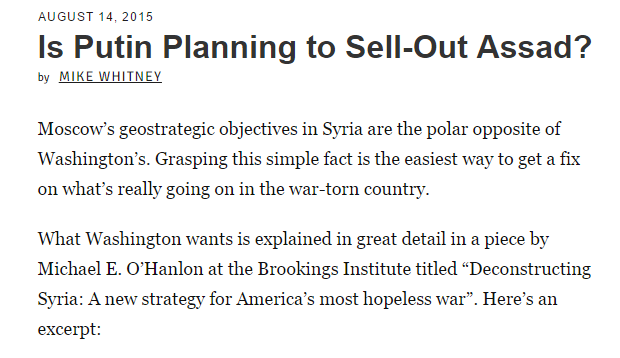J’ai un but, une tâche, disons le mot, une passion. Le métier d’écrire en est une violente et presque indestructible.
I have an object, a task, let me say the word, a passion. The profession of writing is a violent and almost indestructible one.
George Sand
When I wrote my dissertation on “Islamist terrorism” for my degree, the central thesis of that piece was that the democratic deficit and sense of political isolation that affects Muslims in European countries contributes to outbursts of what we call “homegrown extremism” among the Islamic youth in Europe.

Logo of the Justice and Development Party of Libya
The overwhelming, conspicuous number of European fighters in the ranks of the Islamic State (IS, ISIL or ISIS) today plagues many people’s minds and reinforces the need to reconsider the key national security question I once chose to base my university thesis on. How could these youthful men and women turn away from Western democracy to support a barbaric terrorist group? To many, the only solution is to call them traitors, withdraw their citizenship, and call for their deaths in Coalition airstrikes in Iraq and Syria. An approach that I can only call ham-fisted and futile.
To me, the evidence only suggests that there is a constant stream of alienated Muslim youth that feels drawn to the extremists’ promise of an Islamic polity – a promise that fills a deep spiritual vacuum these people must have felt. What they wanted is not an altogether illegitimate idea. Unlike Christianity, which preaches salvation only through faith, Islam is inexorably linked to political activism and sees such activism as a necessary part of a righteous lifestyle. It also carries with it its own idea of law and governance. In this sense, Islam can be acknowledged as a political ideology in its own right without adding “ism” to the end of it (the vast number of Muslims in Pakistan, Iran and elsewhere will explain that Islam is indeed their political ideology as well as their religious persuasion). Islamism may be a misnomer altogether, because Islam has consistently been a model of state throughout history even before the advent of this new term. This same fact also serves as evidence to many that Islam is inextricably linked to “terrorists”, given that all ideologies have their militant fringe and Islam cannot be an exception.
The militant fringe grows when there is a democratic deficit and the sense of isolation felt by many young Muslims in a society from a political process from a state that discriminates against them and scapegoats them as enemies will make them easy prey for jihadist recruiters. The jihadists know their recruitment base feels alienated and isolated, and they know just how to tap into this sentiment and exploit it to brainwash troubled and often oppressed people.
Moderate Islamic parties in Europe as an alternative to ISIL?
If we don’t want Western Muslims to be forced to choose between a ham-fisted, aggressive state dominated by Christians and Jews on a so-called “war on terror” on the one hand, and a violent Takfiri group on the other, there must be a third alternative. It would look something like the party currently ruling Turkey, which is already accepted as a Western power despite its overwhelming Muslim population and the dominance of Islamic culture and sensibilities in Turkey.
Formation of social conservative Islamic parties has been consistent with the advance of democracy in some specific cases in the Middle East (and Europe if we include Turkey), overcoming decades of authoritarian rule – even if the parties in question have their own authoritarian streak as we see in Erdogan’s Turkey. In Iran, the Shah was overthrown and his regime replaced by an Islamic one that eventually won widespread popular approval according to polls and referendums held in the country. The Muslim Brotherhood had its faults, but it was legitimately elected by the Egyptian people, and it did not consist of terrorists who wanted to attack the West. The Ennadha Movement was likewise one of the main democratic choices of the Tunisian people and served perfectly fine in government. The already mentioned AKP (Justice and Development Party) in Turkey has a similar socially conservative position and is considered Islamist by some. It makes no secret of recognizing and supporting moderate Islamic parties including the Muslim Brotherhood around the world and its counterpart in Libya – also called the Justice and Development Party – which is openly Islamist. On the whole, the so-called Arab Spring was a series of moderate Islamic uprisings in the Middle East, although now the fighting has become less about democracy and more about replacing Bashar al-Assad with irredeemable bandits such as ISIL in Syria and Iraq – an event that would plague the lives of millions and end the lives of even more.
Separation of church and state?
The tendency to create religion-based political parties may be considered unconstitutional in the US but it is not in the EU. Here, it is perfectly legal and constitutionally acceptable to create Christian or Islamic democratic parties without being banned. This includes in the UK, where we still have an “established” religion being Anglicanism in England and a “national” religion of Scotland being the Church of Scotland. In Germany, Christian democrat ideology is immensely popular, possibly due to it being the ideology of the July 20 plotters who are seen by Germans as the main role models for patriotic German loyalty without the associations of Nazism.
In the UK it is considered somewhat taboo to create a political party with overtly religious goals, although the Conservative Party leadership has expressly described Britain as being a “Christian” nation: a claim that is false according to official statistics. Islam is the fastest-growing religion in the UK. If the existing trend continues in the coming decades, the Church of England and the Church of Scotland will eventually be irrelevant and stripped of their status – as may His (or Her) Majesty. Something that few would protest if indeed Islam continued on its course to become the dominant religion in Great Britain.
As the population of Europe becomes more attuned to Islamic values due to migration and Islam gets more popular among the youth – something that is undeniable already – the support base for the creation of an Islamic party in the UK is viable already and any launch of such a party (with enough funds from wealthy Turkish, Iranian or Arab donors) would be a success. Because most of the youth of Britain is already Muslim, it is not an exaggeration to predict that the elected Parliament in the UK and other EU countries will overwhelmingly be Muslim within a single generation. A well-organized Islamic democrat party could secure possibly a massive 3%-4% percent (over half a million) of the vote in an election in the UK already if the party existed today, but if the Muslim population continues to rise, within a generation securing 20%-30% in an election could mean the democratic rule of an Islamic party in the UK (which doesn’t require an electoral majority to form a majority government). The person who will be Britain’s Prime Minister in the 2050s is probably a Muslim child alive today.
Rather than throwing a tantrum about this “Islamization”, as right-wing pundits would call it, it is more prudent to prepare for it or actively embrace inevitable change. The British Monarch is required to maintain an archaic oath to uphold the doctrine of the Church of England, although this is only hot air because she does nothing to crack down the Roman Catholic Church or the Church of Scotland.
It does not speak well of the future that we have members of institutions today, including soldiers, who openly bragged that their mission in life was to bomb and kill as many Muslims as possible, while the people of Europe are overwhelmingly turning to Islam. While some doomsayers have warned of a civil war being inevitable because of such trajectories shown in statistics, I prefer to be calmer about the future. Muslims need not turn to extremism to protest an unjust regime that targets them, anymore than secularists or nationalists need to turn to far-right extremist parties. Muslims should focus on the real “jihad” their religion tells them to pursue, which consists of preaching and familiarizing non-adherents with Islamic thought and morality.
Whatever Europe’s future, we can rest assured that it survived one mass-conversion to a Middle Eastern religion, so there is no reason to think a second would be any sort of doomsday event.


